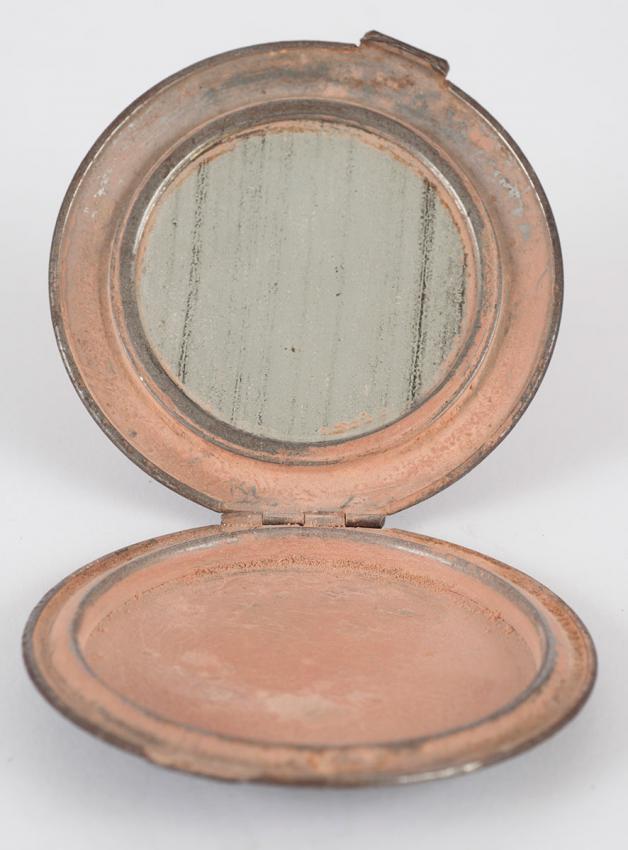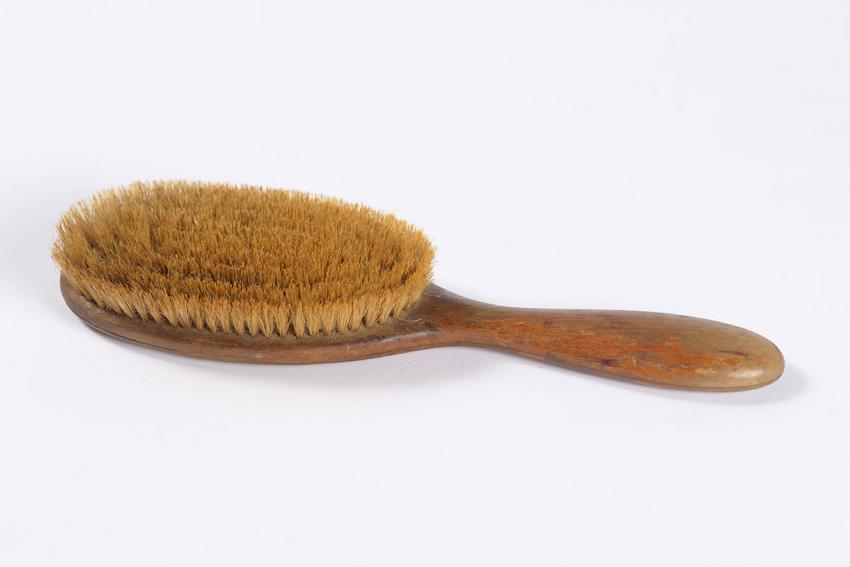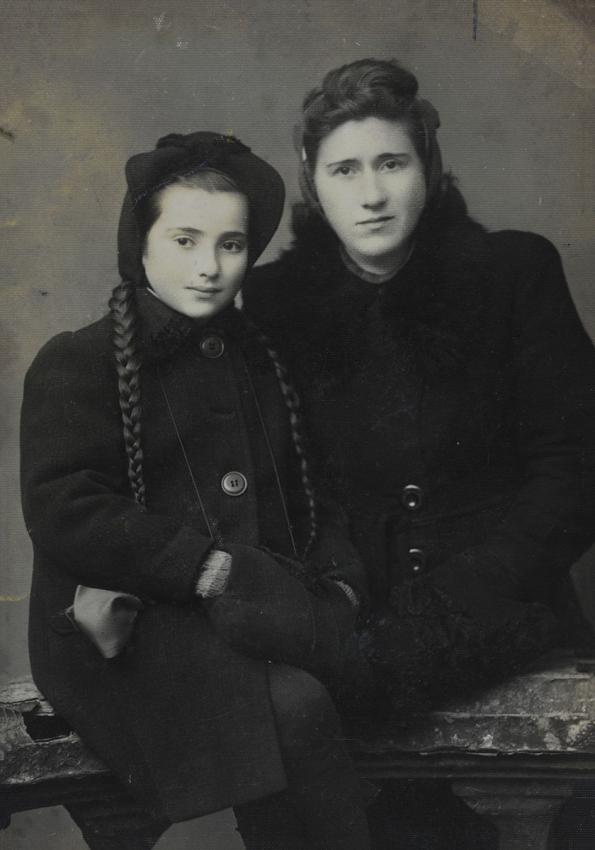
Yad Vashem Artifacts Collection
Donated by Lila Wien (Bromberg), Givat Shmuel, Israel


Yad Vashem Artifacts Collection
Donated by Lila Wien (Bromberg), Givat Shmuel, Israel



Sunday to Thursday: 09:00-17:00
Fridays and Holiday eves: 09:00-14:00
Yad Vashem is closed on Saturdays and all Jewish Holidays.
Entrance to the Holocaust History Museum is not permitted for children under the age of 10. Babies in strollers or carriers will not be permitted to enter.

Yad Vashem Artifacts Collection
Donated by Lila Wien (Bromberg), Givat Shmuel, Israel


Yad Vashem Artifacts Collection
Donated by Lila Wien (Bromberg), Givat Shmuel, Israel



Esther and Max Bromberg, a young couple from Warsaw, were confined in the Warsaw ghetto with their daughter Lila. Before the war Max, a linguist, was employed as a translator and Esther was a secretary. In the ghetto they both worked as hairdressers. As living conditions deteriorated Max decided to try to smuggle his wife and daughter out of the ghetto.
Her parents wrapped Lila in a thick wad of cloth and blankets, and bribed a Pole standing outside the ghetto to catch the child when Max and Esther threw her from a window. Next, Esther exited the ghetto via the gate equipped with false documents, collected Lila and escaped with her to the countryside. One of the few things that Esther took with her was the powder compact that Max had given her as an engagement present and a hairbrush that Max had given to his young daughter.
Mother and daughter lived under assumed identities until the end of the war. Esther paid for hiding places with jewelry and when possible earned a living as a hairdresser. Max managed to stay in touch with his wife for a while and told her of the deteriorating situation in the ghetto. In his last letter he wrote:
"I have one request – stay alive. Perhaps we will meet again sometime. Perhaps, although I very much doubt it. Don't cry my little one. I kiss you a thousand times. If you have a little time during the day, sit Lilka on your lap and tell her that her father loves her more than life itself."
Max was murdered. Esther and Lila survived. The powder compact and the hairbrush remain as mementos from a loving husband and father who wrote in his last letter:
"I wish we could meet one more time… after that I would be able die and not be sorry about my life."
Tragically, his wish was not granted.
Yad Vashem Artifacts Collection, donated by Lila Wien (Bromberg), Givat Shmuel, Israel

Thank you for registering to receive information from Yad Vashem.
You will receive periodic updates regarding recent events, publications and new initiatives.

"The work of Yad Vashem is critical and necessary to remind the world of the consequences of hate"
Paul Daly
#GivingTuesday
Donate to Educate Against Hate


Worldwide antisemitism is on the rise.
At Yad Vashem, we strive to make the world a better place by combating antisemitism through teacher training, international lectures and workshops and online courses.
We need you to partner with us in this vital mission to #EducateAgainstHate
The good news:
The Yad Vashem website had recently undergone a major upgrade!
The less good news:
The page you are looking for has apparently been moved.
We are therefore redirecting you to what we hope will be a useful landing page.
For any questions/clarifications/problems, please contact: webmaster@yadvashem.org.il
Press the X button to continue



